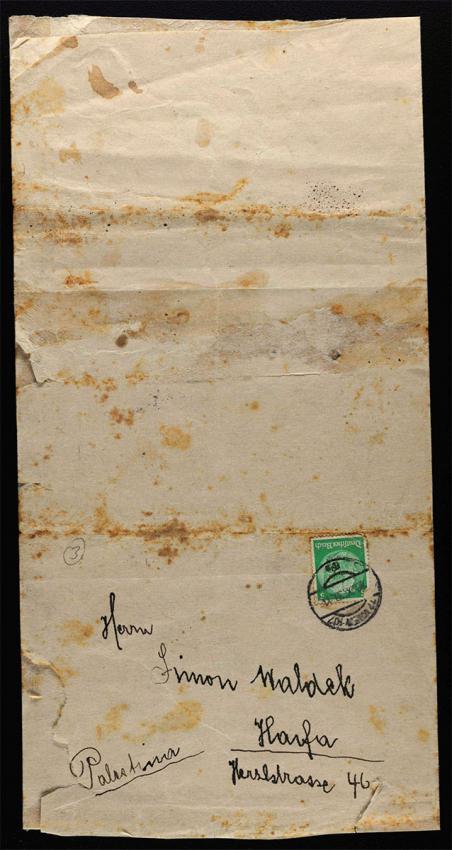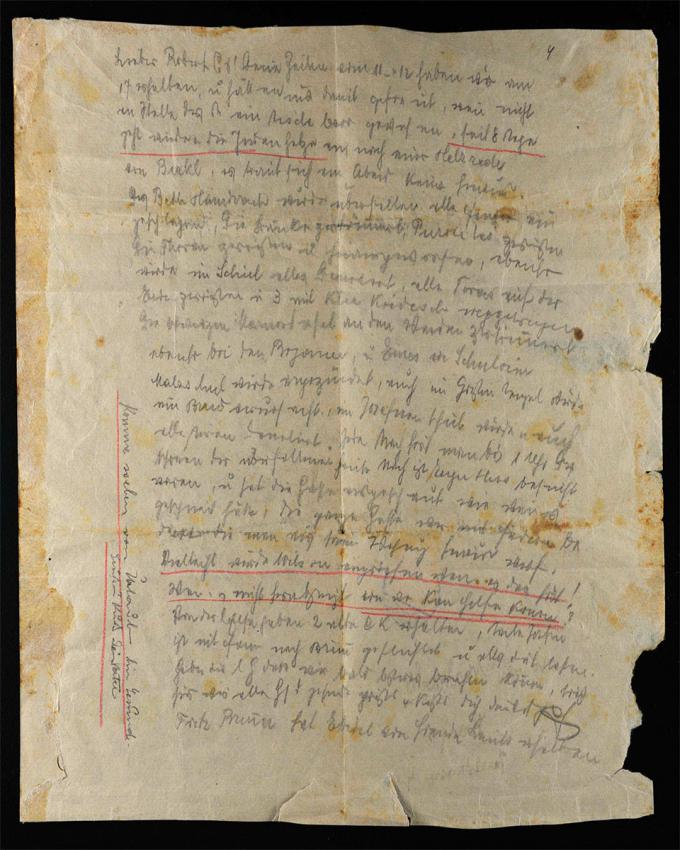On 10 November 1938, the US Ambassador to Germany Hugh R. Wilson sent a telegram to the Foreign Office in Washington, stating that in the early hours of the morning the windows of Jewish-owned shops throughout the Reich had been systematically shattered and that the major synagogues in Berlin had been burned down. Onlookers had emphasized that although they had not seen people wearing Nazi uniforms during the disturbances, it was inconceivable that such a powerful police force would have allowed such disorder were there not orders from above.
Just days later Arnold (Aharon) Rosenfeld from Vienna wrote to his son Robert (Haim) in Haifa:
The Synagogue was attacked, all the windows were shattered, the pews were smashed, the curtain of the Ark torn into pieces and a Torah scroll thrown outside. The entire contents of the synagogue were destroyed, Torah scrolls were thrown to the ground and torn and three scrolls were removed together with the Ark. The black memorial plaques on the walls were smashed.
He also describes the attacks on the Jews and their property:
Throughout the night until one o'clock the screams of people being attacked could be heard. Last night we visited Eugen Hess and the alleyway looked the way it does after a snowfall. Everything was covered with feathers that had been thrown from the apartments.
He continued:
Is there a chance that Wilson will get involved when he hears what has happened? How can we hope for help if this is not made public?
Is it possible that Arnold Rosenfeld was referring to the US Ambassador to Germany and was trying to send his family some sort of a coded message or a request to publicize the information? Despite the censorship of the times, the letter reached its destination. Arnold Rosenfeld wrote his letter on the inside of a folded piece of paper, disguising it as the paper band that is used to secure a newspaper, and so evaded the censor's notice. He sent the letter a few days after Kristallnacht and the impact of the traumatic events is clear in every sentence – a contemporaneous testimony by someone who did not live to tell his story. His son Haim gave the letter to Yad Vashem in 1987, a short while before he died.
Arnold Rosenfeld ends his letter with the following words:
May the Holy One Blessed Be He help us to be able to send better news. We are thank G-d healthy, best wishes and kisses, Your father.
About three years later he was deported to Theresienstadt where it appears that he died in 1943.








